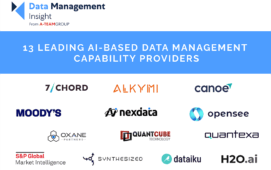Markit is meeting European Market Infrastructure Regulation (EMIR) reporting requirements by adding additional data fields and data to its MarkitServ reporting solution and connectivity to DTCC’s UK derivatives repository. The EMIR service went live last month after MarkitServ sent several million trade records to the DTCC derivatives repository on behalf of over one hundred firms and ahead of next week’s EMIR compliance deadline of 12 February.
Henry Hunter, managing director and global head of derivatives processing at Markit, says the EMIR reporting service is a logical extension of MarkitServ and is particularly useful in a market where participants must work to different regulatory regimes. In Europe, for example, both counterparties to a derivatives trade must report to a registered trade repository, while in the US, the requirement is for only one counterparty to report. Reporting timeframes also differ, with European regulation stipulating T+1 and US regulation demanding timing ranging from 30 minutes to 48 hours depending on the information that must be reported and the reporting counterparty.
Hunter explains: “We have configured the service using Unique Transaction Identifiers (UTIs) as required by EMIR to make sure both sides of a trade can report and are consistent. We have also configured the service so that trades can be reported in a number of jurisdictions if that is necessary.” The company will include Legal Entity Identifiers (LEIs) in EMIR reporting if they are available, obtaining the LEIs from customers and setting them up in static data tables so that they can be picked up as needed.
Hunter describes reporting under EMIR in two parts: generating the data needed to report and getting trades into a repository. He explains: “Trades can be sent to a repository from a risk management system, which is not particularly difficult. More difficult is data generation. The crux is the UTI and making sure it is shared as a common identifier between counterparties so that is not duplicated in the repository. This is where MarkitServ is different to other data connectivity solutions.”
MarkitServ is already used by over 100 organisations for high volume regulatory trade reporting, leading Markit to expect that a large number of these organisations will have to report under EMIR and will do so by extending their use of MarkitServ.
Subscribe to our newsletter




